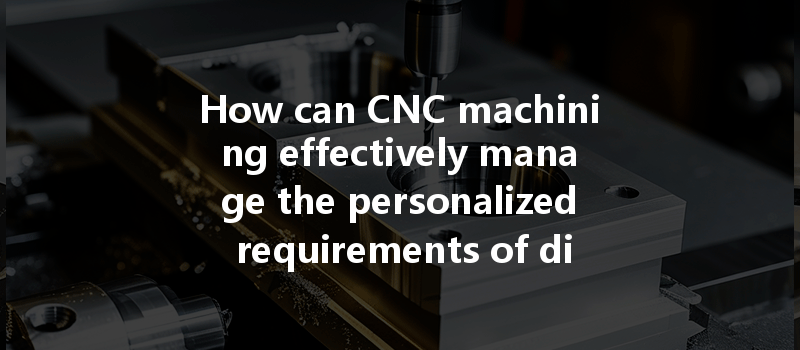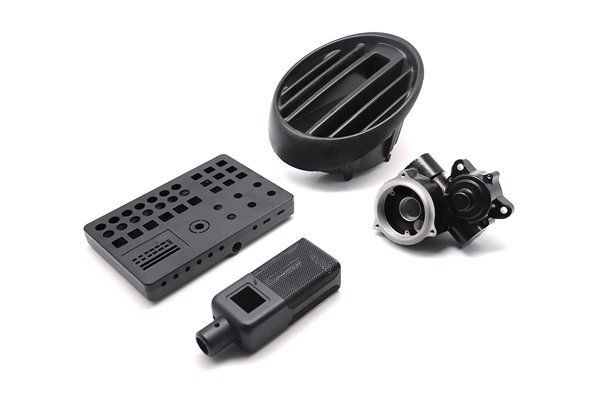Opening
Did you know that over 70% of customers expect personalized services from manufacturers? In today’s competitive market, tailoring products to meet specific customer needs isn’t just a nice-to-have—it’s a necessity that can make or break business relationships. This expectation is one of the driving forces behind the evolution of CNC (Computer Numerical Control) machining. But how can this advanced technology truly cater to the diverse, personalized demands of customers?
to CNC Machining’s Flexibility
CNC machining involves the use of computer-controlled tools to produce a variety of parts and components with a high degree of precision. The capability of CNC machines to adapt to different materials and intricate designs sets them apart from traditional manufacturing techniques, enabling businesses to offer personalized solutions. In this blog post, we will explore how CNC machining can effectively manage personalized customer requirements, addressing common challenges and offering practical solutions.
Understanding Customer Needs: The Foundation of Personalization
To effectively manage personalized requirements, it is crucial to have a deep understanding of customer needs. A thorough needs assessment can help manufacturers identify specific requirements such as:
Processes for Identifying Customer Expectations
Capabilities of CNC Machining to Meet Personalized Requirements
The versatility of CNC machining is foundational in its ability to accommodate personalized manufacturing requests. Let’s delve into the specific capabilities that make CNC machining a go-to solution for custom requirements.
CNC machines can process a wide variety of materials, from metals like aluminum and steel to plastics such as ABS and polycarbonate. This flexibility allows manufacturers to cater to the specific material preferences of their customers.
Solution: Invest in CNC machines equipped to handle multi-material operations. This ensures that you can adapt to different material needs without compromising quality or increasing lead times.
Precision is a hallmark of CNC machining, allowing for custom tolerance settings that align with customer specifications. This ensures that parts fit perfectly and meet functional requirements.
Solution: Implement rigorous quality control protocols that check tolerances throughout the machining process. Continuous training for operators can also ensure they understand the importance of precision.
CNC technology excels in producing complex shapes that traditional machinery often struggles with. This feature is vital when customers request innovative designs.
Solution: Leverage CAD (Computer-Aided Design) software to visualize complex designs before machining. Holding brainstorming sessions that include engineers and customers can lead to the creation of innovative solutions.
CNC machining allows for quick prototyping, enabling customers to receive samples of their designs much faster for testing and refinement.
Solution: Develop an agile workflow that prioritizes rapid prototyping. Establish a feedback loop that allows clients to make necessary alterations before final production.
Addressing the Challenges of Personalized Manufacturing
While CNC machining provides a myriad of solutions for customizing products, challenges do exist. Understanding and addressing these can strengthen relationships with customers.

One of the biggest challenges in personalized CNC machining is the high cost of setup, especially for small batch runs.
Solution: Use modular tooling and setups to minimize costs. By standardizing components where possible, the setup phase becomes less expensive and more efficient. This lets you offer competitive pricing to customers requiring specialized parts.
Custom orders can often extend lead times, frustrating clients who expect quick turnarounds.
Solution: Optimize production schedules and use advanced planning software to better manage timelines. Providing clients with real-time updates on their order status can also increase transparency and reduce anxiety.
Sometimes, extensive customization can lead to inefficiencies in the production process.
Solution: Carefully evaluate which parts of the process can remain standardized while still meeting customer requirements. Develop a catalog of “standard” customizable options that allow clients choice within a predefined framework.
Leveraging Technologies for Enhanced Customization
To further manage personalized requirements, manufacturers can integrate various technologies into their CNC machining processes.
IoT-enabled machines can provide real-time analytics, helping manufacturers monitor performance and make adjustments based on customer needs instantly.
Solution: Invest in IoT technology that tracks machine performance and allows for predictive maintenance, ensuring machines operate at optimal capacity to meet customer demands.
AI can analyze vast amounts of customer data to predict trends, leading to improved customer service and product development.
Solution: Utilize AI-driven software to analyze past orders and customer interactions, tailoring future projects more accurately to client specifications.
Technologies like 3D printing and hybrid manufacturing can complement CNC machining, offering customers a wider range of options.
Solution: Experiment with hybrid approaches that merge CNC machining with additive manufacturing. This will enable the creation of complex geometries while still leveraging the precision of CNC processes.
Case Studies: Success through Personalization
To illustrate the effectiveness of CNC machining in managing personalized requirements, let’s look at a few successful examples.
Case Study 1: Aerospace Components
An aerospace manufacturer faced an influx of unique requests from their clients for custom parts with tight tolerances. By utilizing CNC machining with flexible tooling, they reduced lead times from weeks to days, while improving quality control.
Case Study 2: Medical Devices
A medical device manufacturer needed to innovate rapidly due to changing regulations. They deployed rapid prototyping through CNC machining to create custom devices, drastically cutting their time to market while ensuring compliance with new standards.
Case Study 3: Automotive Industry
An automotive company wanted to introduce a new line of customized parts for electric vehicles. By tapping into advanced CNC machining technologies, they offered tailored solutions that differed per vehicle model while maintaining standardized quality levels across the board.
: The Future of Personalized CNC Machining
In summary, CNC machining presents unparalleled opportunities for managing the personalized requirements of diverse customers by facilitating multi-material options, custom tolerances, and complex geometries. By closely understanding customer needs, leveraging advanced technologies, and implementing strategic solutions for common challenges, manufacturers can build strong, lasting relationships with their clients.
The importance of embracing personalization in CNC machining cannot be overstated. As market demands evolve and customer expectations grow, businesses willing to adapt will undoubtedly gain a competitive edge. Taking proactive steps today ensures you’re not just meeting the needs of your customers but exceeding their expectations—turning them into loyal advocates for your brand.
Stay ahead of the curve, and invest in technologies and processes that prioritize personalized customer interactions, ensuring that your CNC machining services remain relevant in a rapidly evolving landscape. Personalized manufacturing is more than just a strategy; it is a commitment to understanding and serving your customers better.






